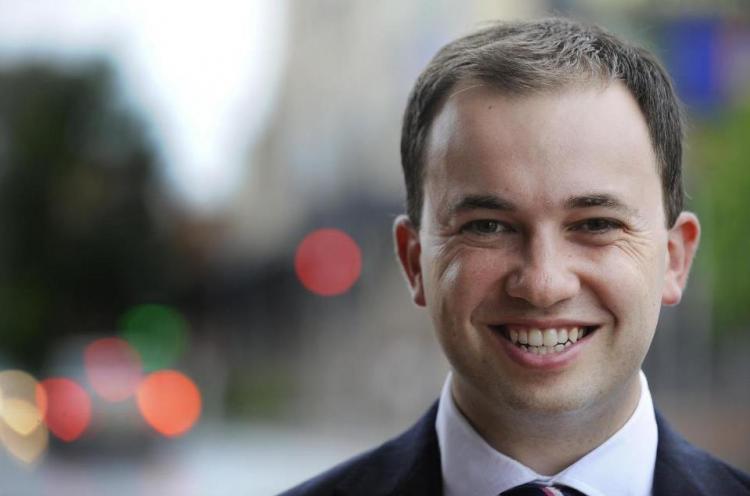
Mr MATT KEAN (Hornsby-Parliamentary Secretary) [5.50 p.m.]: I am delighted to speak in support of the Multicultural NSW Legislation Amendment Bill 2014, which promotes the beliefs and values that unite all of us as Australians, and the social and economic benefits of our cultural diversity.
I am delighted to join the member for Keira in putting on the public record my full support of the efforts by people on both sides of politics over many years to promote a diverse, multicultural and tolerant society. It is one of Australia's greatest achievements. Every month members attend citizenship ceremonies at their local council chambers and welcome people from throughout the world who have chosen to call Australia home. They bring with them the promise and the hope that they will make this country even better. Regardless of our politics, we should all support that goal.
The member for Keira rightly pointed out the enormous contribution that Gough Whitlam made to promoting multiculturalism in Australia. However, contrary to what he said, the Holt Liberal Government abolished the White Australia policy, which was introduced by a Labor government. I am glad that all members, regardless of their politics, have come together to repudiate the bad old days of the Labor Party when it introduced that policy. We are standing together, regardless of our background or skin colour, to build this strong, great country that is Australia. All members of this House should be committed to that goal.
This legislation seeks to strengthen the diverse multicultural nation that we have built. It highlights the importance of social cohesion by placing a strong focus on citizenship, mutual obligation and respect. That respect is gained through meeting, living and working with each other, and taking part in community events, festivals and days of commemoration such as Anzac Day and Australia Day. The Government also recognises that our diverse and multicultural community is one of the State's most important and valuable economic resources. It has established the NSW Multicultural Business Advisory Panel to ensure that we harness our cultural diversity, language skills and overseas links as part of our pitch for new business.
The recent election of the Modi Government in India presents great opportunities for Australia. The Indian diaspora in this country is critical in developing inter-country ties, strengthening those bonds and ensuring that our country can make the most of the opportunities that this change in government offers. Strong relationships in the community on the basis of people-to-people links are the foundation of economic activity and growth, particularly with our Asian neighbours. The Indian story hopefully will continue to driving Australia's economic prosperity. These factors underpin the Government's international engagement strategy, which aims to build closer international trade and investment relationships, particularly with countries in our region.
The China strategy—the first of 10 such country-based strategies—was launched on 2 September 2014. New South Wales has the strongest cultural, historical and social ties with China of any Australian State or Territory. The number of residents with Chinese ancestry continues to grow—the Chinese now comprise 8 per cent of this State's population. The Chinese also represent 8 per cent of my local community and they make an enormous contribution to our way of life. Chinese languages are the most commonly spoken non-English languages in this State. The 2011 census reveals that 136,000 people in this State speak Cantonese and 139,000 people speak Mandarin.
Multicultural NSW supports diverse communities through its grants program, which recently has been revitalised to better meet the needs of culturally diverse communities, to support initiatives, and to promote cultural harmony and social cohesion. I commend the Minister for reforming the grants program so that it lends itself to better supporting our multicultural communities. Several different types of grants are available, including the Celebration Grant, which offers up to $5,000 to events and festivals that celebrate cultural diversity, and the Unity Grants program, which offers up $30,000 to projects that promote our shared beliefs and values by bringing diverse communities together. Support grants of up to $10,000 are also available to assist individuals and communities to build community capacity and to participate more fully in society, and partnership grants of up to $150,000 will be awarded to significant projects that have a long-term impact on the people of New South Wales. One of the many functions of Multicultural NSW provided for in this bill is to support community initiatives, including those involving women and girls. That is the wonderful thing about the amendments proposed by the Minister.
Over the past 30 years this State has welcomed more than one million migrants. The Government recognises that our diversity is one of our greatest assets. It has established a number of initiatives through Multicultural NSW that celebrate and promote this asset. I could cite many examples. I know that the member for Drummoyne is interested in Armani ties, but he is also particularly interested Multicultural March. This initiative, which was established in 2012, is a month-long celebration of this State's cultural diversity. Many members have attended the Premier's Harmony Dinner, which is now in its third year. Former Premier Barry O'Farrell established the event, which it is another great example of his legacy as Premier of this State. The dinner brings together people from different cultures, faiths and linguistic backgrounds. This year 1,000 people attended the dinner, which has now won its place on the Destination NSW calendar of significant events.
The Premier's Multicultural Media Awards, which bestows awards in 13 categories, recognises the important role played by the ethnic media in our community. The Australian Multicultural Marketing Awards recognise the achievements of government agencies, businesses and community groups that successfully implement marketing strategies tailored for culturally diverse communities. These initiatives demonstrate that the Government is committed to celebrating and promoting our diversity, and that is a great thing. The name change from the Community Relations Commission to Multicultural NSW is in line with the changes made in other States, such as Multicultural SA and the Victorian Multicultural Commission. This change does not affect the organisation's statutory independence or its role as the lead agency for New South Wales in ensuring that the objectives of this legislation are met.
Multicultural NSW is for everyone in this State. It exists to build and maintain a cohesive and harmonious multicultural society. It does this by engaging with all sections of our society to break down barriers to participation and by enabling access to services and programs. It will continue to promote and to encourage interfaith dialogue by bringing together followers of various religions in the interest of community harmony. This bill enhances the functions of Multicultural NSW by including in its objectives a focus on initiatives designed to combat racism, to empower women and girls, and to provide support to other groups from diverse backgrounds. It makes specific reference to multicultural policies and service programs that promote better performance and service delivery for culturally and linguistically diverse communities.
This program makes government agencies accountable for their actions. The bill also provides for a new governance structure with a full-time chief executive officer as the head of Multicultural NSW and a part-time chairperson serving the new skills-based advisory panel. I note that the shadow Minister for Citizenship and Communities said that this legislation was simply applying a coat of paint. Anything that we do to combat racism, bigotry and intolerance is more than that; it is strengthening what we all believe in—that is, our multicultural society.
Read full transcript in Hansard here.
